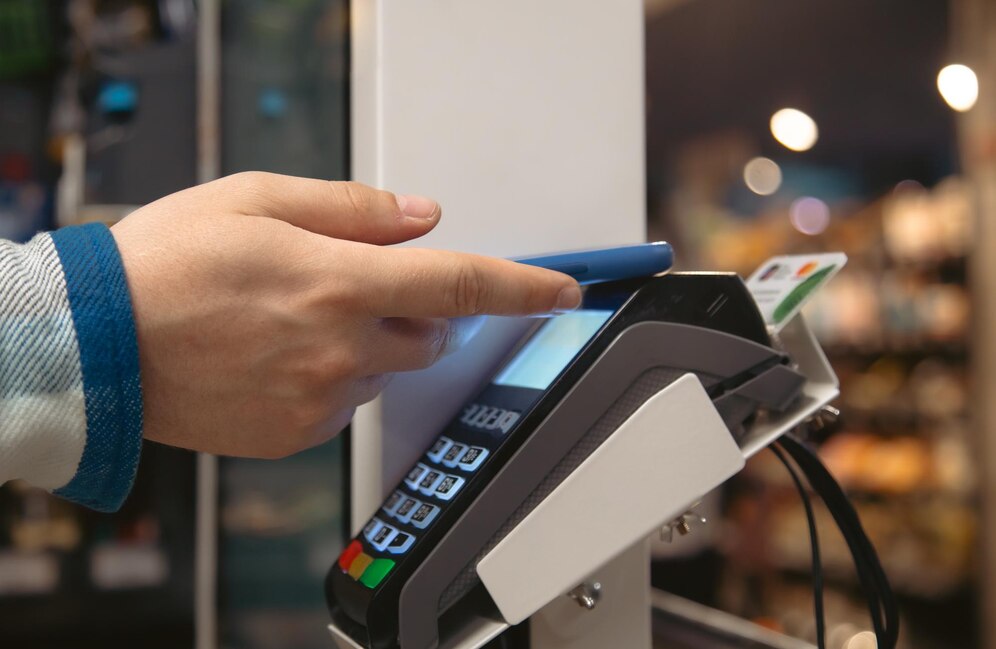In the thriving digital marketplace, swipe machines have become indispensable for businesses of all sizes. They are effective in enabling seamless transactions and enhancing customer experience via convenience. Yet, one aspect that often leaves business owners scratching their heads is the significant variation in swipe machine prices across different providers.
For any business, understanding the factors behind the discrepancy in the swipe machine prices is crucial. It will shed light on the intricacies of the payment processing industry, helping them make informed decisions. Join us as we examine why swipe machine prices vary and what factors influence these variations.
Learn about the anatomy of a swipe machine
Before getting into the intricacies of swipe machine prices, let us learn about the anatomy of a swipe machine. Such machines are a marvel of modern technology and innovation, combining a blend of hardware and software engineered to process card transactions swiftly and securely.
Critical components, including magnetic stripe reader EMV chip slots, are crucial in ensuring the seamless flow of funds from buyer to seller. While magnetic strip readers decode information stored on magnetic strips of cards, EMV chip slots interact with embedded chips on modern credit and debit cards.
Understand the payment processing infrastructure
You must understand that payment processors, gateways, and networks collaborate harmoniously to validate, authorise, and settle transactions in real time. This intricate web of interconnected systems forms the backbone of the digital economy, which enables businesses to accept payments from customers far and wide.
Factors influencing the swipe machine prices
Moving ahead, let us discuss the top seven factors that significantly influence the price variations of a swipe machine:
- Hardware specifications and capabilities: Advanced specifications such as NFC compatibility or biometric authentication may increase the swipe machine price. It is evident that higher-quality materials and construction can also contribute to cost differences
- Software features and compatibility: Software features such as intuitive user interfaces, seamless integration with POS systems, and robust security protocol can influence the price, significantly increasing the costs. Additionally, software updates and maintenance costs can impact the overall swipe machine price
- Security standards and certifications: Compliance with industry standards and certifications such as PCI DSS (Payment Card Industry Data Security Standard) can elevate the price. Plus, enhanced security measures, like encryption protocols and tokenisation, may result in higher costs
- Provider reputation and brand value: Established brands with a track record of reliability and innovation may command higher swipe machine prices based on brand equity. You must note that providers offering a comprehensive range of services and support may justify premium pricing
- Service quality and customer support: Providers that offer timely updates, 24/7 customer assistance, and training programmes may charge additional prices for these value-added services. Swipe machine price may also be influenced by extra features like extended support contracts and warranty coverage.
- Economic factors and market competition: Other critical factors that influence the swipe machine prices are supply and demand dynamics, and market competition. Providers may adjust prices to remain competitive in the market while maintaining profitability
- Geographical considerations: Swipe machine prices may vary based on location due to factors like taxes, import/export regulations, and local market conditions. Different regions may have varying demand levels, leading to price discrepancies
A comparative analysis
Let us understand the price variation on the basis of an illustration. Imagine a hypothetical scenario with two businesses – one opts for a budget-friendly swipe machine from a lesser-known provider, while the other invests in a top-of-the-line device from a renowned brand. Despite the apparent cost disparity, the latter business may reap long-term benefits in the form of enhanced reliability, security, and customer satisfaction. It ultimately outweighs the initial investment.
Snagging the best swipe machine price
Beneath the veneer of numbers lies technological innovation, economic principles, and provider dynamics, shaping the environment of payment processing. With the details mentioned above in the blog, businesses can explore the maze of swipe machine prices with confidence. It will allow them to make informed decisions that propel their ventures toward success in the ever-evolving world of commerce.
If you are looking for a card payment machine that you can trust, check out Qwerty by Pine Labs. Qwerty is a simple-to-use and dependable card swipe machine which allows you to accept payments from customers quickly. It’s an all-in-one point-of-sale machine that is simple yet powerful, accepting payments from a wide range of modes, including UPI, wallets, QR, cards, and even loyalty points.
With this machine, you can process transactions quickly on Qwerty terminals, leading to a positive in-store experience for your customers. This machine can seamlessly integrate with your billing system and helps you keep track of the transactions. It’s time to choose the best swipe machine price for your business. Visit Pine Labs and buy yours today.



